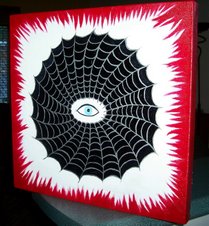Time’s Arrow by Martin Amis. The book recounts the life of a German Holocaust doctor. The narrator, together with the reader, experiences time passing in reverse, as the main character becomes younger and younger during the course of the novel. This is done with unerring skill and is quite disconcerting. The doctor starts off as a middle class American who then goes back through several identities until he is participating in the horrors of Auschwitz. A good, challenging read. I read this book because I saw a fleeting and dismissive reference to it in Inga Clendinnen’s (IC) book Reading the Holocaust (IC writes: ‘The most effective imagined evocations of the Holocaust seem to proceed either by invocation, the glancing reference to an existing bank of ideas, images, sentiments(‘Auschwitz’), or, perhaps, more effectively, by indirection. Martin Amis in Time’s Arrow conjures Auschwitz skimmingly through the swift manipulation of familiar clusters of icons.’ An that’s it! IC, I’ve discovered combines intellectual acuity with academic arrogance to denounce and dismiss just about anything that lacks historiographical purity.
Reading the Holocaust by Inga Clendinnen’s (IC) book (1998, 250pp). I decided to read something of IC after reading her attacks on Kate Grenville’s The Secret River. IC wrote a lengthy piece called The History Question – Who Owns the Past? in Quarterly Essay No 23, 2006. When Grenville responded to IC's bombastic and selective attack she had to use kindergarten simplicity to spell out that her work was fiction. But IC had to have the last say with a supercilious pedantic uppercut. (Quarterly Essay No 25, 2007).
I was going to do a detailed comment on this particular history war but after reading the piece in The Age of last year where IC said she jumped around with anger over Grenville’s treatment of some sacred historical incident I thought why bother. IC appears, at least in this brief encounter with her, more interested in histrionics than history. Proprietorial purists like IC should accept that more people have received more understanding of historical events/ periods/people from historical novels than ever have from pure historical works. A quick scan of my meagre bookshelves shows writers such as Roger McDonald (early Tasmania + Darwin); Peter Carey (early OZ); Tracy Chevalier -The Girl with the Pearl Earring (17th century Holland); Colleen McCullough (ancient Rome); Tolstoy ( everyone knows this one); numerous novels on World War One (eg Pat Barker, Sebastian Faulks, Patricia Anthony et al - I wouldn't include All Quiet On The Western Front because the Clendinnen clan would probably suggest it was a belated diary because the author had been there). That's enough and I've only checked one bookcase but you get my point. Anyway I read IC’s book on the Holocaust and was a bit underwhelmed.
Sunday, June 24, 2007
Subscribe to:
Post Comments (Atom)



No comments:
Post a Comment